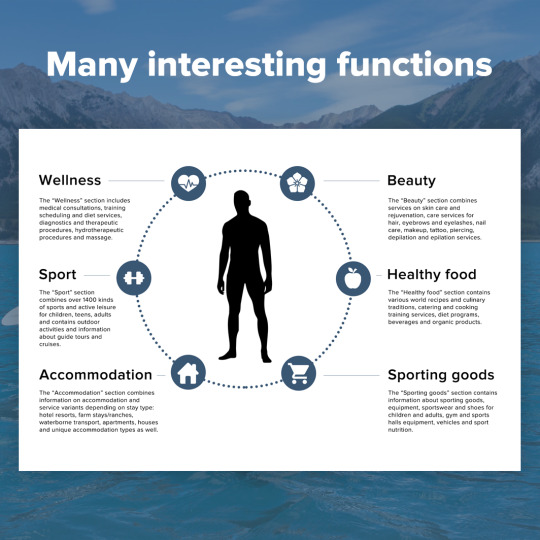#personalsite
Text
So uh. I'm not 100% convinced Tumblr is going to go down in flames over the CEO outing himself as a transphobic manbaby and potentially facing a discrimination lawsuit, but any mutuals looking to find me elsewhere can find me on Cohost and Mastodon
I also keep my website up to date on where peeps can find me in case things change: https://tangledfates.neocities.org/personalsite/social
I'll be sure to tack any additions onto the reblogs of this post too, and pin it.
Definitely check me out literally anywhere else if you're interested in my work because I am not posting it here, at least not until there's significant change. I do NOT want to risk gaining traction on the transphobic hellsite.
#my post#thoughts of bard#on god fuck this shit#Predstrogen did NOT deserve a single iota of this#and it's been absolutely fucking clawing at me all weekend#the fact that this has already been a recurring theme on the site was bad enough#i already didn't feel safe talking openly about myself or my experiences on this platform but holy SHIT
12 notes
·
View notes
Text
Almost time for my official site's debut!
So... I've been really quiet as of late but that's because I've been working hard to bring you my official website - Cri8ive! I'm so excited, this site represents everything that I am and I can do in terms of content creation, from web design to editing / copywriting to audio/video editing to, of course, digital art!
It's been a long time since I last ran a site that was "just" my own... I kept saying "someday" I'd work on getting my online presence but kept being distracted by this or that hassle, concern, setback, hectic time in real life or over work, or simply didn't have enough energy left for it.
But now it's here and it's ready to debut and I cannot wait to share it with y'all! Official unveiling, if all goes well and there are no last-minute glitches, will be 99,9% this coming Thursday! STAY TUNED!! :)
#newsite, #webdesign, #personalsite, #portfolio

0 notes
Text
"ImportError: cannot import name mail" in Flask
I have built is a simple web app with Flask and Python, which I intend to upload to Heroku.
When starting my app locally, with the following script:
#!venv/bin/pythonfrom app import appapp.run(debug = True)
I get this error message:
Traceback (most recent call last):File "./run.py", line 2, in <module> from app import app, mailFile "/home/ricardo/personalSite/app/__init__.py", line 3, in <module> from app import indexFile "/home/ricardo/personalSite/app/index.py", line 6, in <module> from emails import send_emailFile "/home/ricardo/personalSite/app/emails.py", line 2, in <module> from app import app, mailImportError: cannot import name mail
So, it cannot import mail.
Inside the app directory I have this __init__.py, here is were I create the Mail object that is ginving me trouble to import:
from flask import Flaskapp = Flask(__name__)from app import indexfrom flask.ext.mail import Mailmail = Mail(app)
And this is the file emails.py where I call the send_mail function:
from flask.ext.mail import Messagefrom app import app, mailfrom flask import render_templatefrom config import ADMINSfrom decorators import async
So, according to the error message, the error is in this file, in the from app import app, mail.
What is the problem? Why can't it import mail?
Update:
This is my directory listing:
persSite\ venv\ <virtual environment files> app\ static\ templates\ __init__.py index.py emails.py decorators.oy tmp\ run.py
https://codehunter.cc/a/flask/importerror-cannot-import-name-mail-in-flask
0 notes
Photo

A Website represents your personal identity and Business. Check out all the branding and digital marketing pricing in bio! Email: [email protected] #webdesignagency #webdeveloper #webdesigner #digitalagency #digitalmarketing #branding #brand #layout #page #business #webagency #adagency #websitedesign #design #artist #model #actor #actress #personalsite
#personalsite#design#digitalmarketing#webdesigner#artist#websitedesign#webdesignagency#branding#webagency#model#layout#webdeveloper#brand#business#actor#actress#page#adagency#digitalagency
1 note
·
View note
Text






Briefly about the Sport365days catalog. Intuitive system. It is easy to fill in!
https://sport365days.com/add-business
#sport365days_object#madeonsport365days#datascience#webdesign#site constructors#site#landingpage#sitebuilder#websitedesign#lifehack#lifehackforbusiness#businesshelp#servicesforbusiness#salesonline#personalsite#directorymsirectory#businesssites
0 notes
Link
Hey, you should take a look at my compete site where I put all my works!
0 notes
Photo

Tomorrow it’s time to start the complete overhaul. #portfolio #personalsite #redesign #chaseperdiem #day133 https://www.instagram.com/p/CAHhl0sBKg8/?igshid=1qwuos0vbcv73
0 notes
Photo

We are here to provide you with your ideal #website; DM for enquiries. #webdesign #webhosting #digitalmarketing #seo #contentwriting #responsivedesign #creativecontent #business #businesspage #entrepreneur #calltoaction #startup #startupindia #personalsite #personalblog #corporatewebsite
#business#calltoaction#website#webdesign#creativecontent#businesspage#responsivedesign#entrepreneur#startup#startupindia#personalsite#personalblog#corporatewebsite#seo#webhosting#digitalmarketing#contentwriting
2 notes
·
View notes
Photo

Ξεκινήσαμε καλά! Συνεχίζουμε πιο δυνατά! Ευχαριστώ! https://ipap.gr/ #ipap #ipapazacharias #personalsite #blogger #mysite #ipapsite https://www.instagram.com/p/BuJwnIwhYHR/?utm_source=ig_tumblr_share&igshid=vwj9aovggltp
0 notes
Text
September 5-6 2020 is the 48th anniversary of the 1972 Munich Massacre, where 11 Israeli Athletes were kidnapped from the Olympic Village and horrifically killed by Black September; a terrorist organization that was affiliated with the Palestinien Liberation Organization.
Remember their names:
Moshe Weinberg - wrestling coach
Yossef Romano - weightlifter
Ze’ev Freidman - weightlifter
David Berger - weightlifter
Yakov Springer - weightlifting judge
Eliezer Halfin - wrestler
Yossef Gutfrend - wrestling referee
Kehat Shorr - shooting coach
Mark Slavin - wrestler
Andre Spitzer - fencing coach
Amitzur Shapira - track coach
זכרונו לברכה
May their memory be for a blessing
__________________________________________
If you are interested in learning more about this tragedy, here are some resources:
Websites
https://www.britannica.com/event/Munich-Massacre
https://web.nli.org.il/sites/nli/english/collections/personalsites/israel-germany/division-of-germany/pages/munich-olympics.aspx
https://www.history.com/.amp/this-day-in-history/massacre-begins-at-munich-olympics
Book:
One Day in September by Simon Reeve
Movie:
One Day in September (1999)
FYI, I support a two state solution, where both peoples can live in peace. There are major problems on both sides, but that does not negate that this happened.
#munich olympics#1972 massacre#judaism#israeli palestinian conflict#serious post#antisemitism#please dont attack me
6 notes
·
View notes
Note
Hey Ticcy...! I checked your FAQ hoping I'd find an answer to this, so if you answered this somewhere else I'm sorry... but uh, you seem to used to (?) have an Europe-based shop? I really wanted to buy stuff from you and thought, hey if Ticcy is in Europe too- and then I saw there was the US(?)-based one only...Will the EU shop be back at some point? v.v
hello! Ah the eu based shop was on tictail, but the service was shut down, so.. no more eu shop for now ): I’m working on a personalsite tho where I can add also a shop for european shopping, but for now, I only have storenvy active, I’m sorry!
52 notes
·
View notes
Photo

Have you checked out the #styleblog on my #personalsite?! If not, you're missing out! It has great #fashiontipd and ways to get yourself put together in a breeze! #checkitout today! www.premierdesigns.com/coreysexton/style-blog/ #premierjewelry #pdlife #premierdesigns #sahm #girlboss #mixedmetals
#sahm#premierdesigns#premierjewelry#fashiontipd#girlboss#pdlife#checkitout#personalsite#styleblog#mixedmetals
0 notes
Photo

I said I was gonna get these case study slides done and so I have. Well—one at least. More to go still 😜🎂😭😩
#casestudy #portfolio #work #sidehustle #website #webdesign #personalsite #work #werk #ui #ux #targetoptical #visualdesign #graphicdesign #digital #digitaldesign #userexperience #uxdesign #glasses #ecommerce #target
#work#werk#glasses#visualdesign#portfolio#sidehustle#digital#ux#uxdesign#casestudy#personalsite#target#website#userexperience#webdesign#digitaldesign#graphicdesign#targetoptical#ui#ecommerce
0 notes
Photo




👉1ST-have a look at how #Jews, very fastidiously, forged a #reparations agreement w/state of @Germany after #WWII. CLICK HERE #ADOS #itcanbeDONE #comeuppance #tyranny #restitution #atrocities @tariqnasheed @NLIsrael @drboycewatkins1
In the autumn of 1949, with the foundation of the Federal Republic of Germany in the area occupied by the western Allied Powers, the nascent German state still lacked complete sovereignty in every realm. The laws of occupation were still valid and canceling them depended on a variety of political and financial arrangements. One of the conditions for complete German sovereignty pertained to the reparations to be paid to Holocaust victims. In principle, the political leadership of the State of Israel was interested in receiving reparations from Germany, but initially, was unprepared to enter into direct negotiations with German representatives. The Western Allied Powers for their part refused to demand reparations from Germany on Israel’s behalf, forcing both sides to sit around the negotiating table. Eventually, negotiations began in early 1952, in the city of The Hague, Holland.
The discussions between the two delegations were not easy. This was not surprising in light of the difficult topic and the fact that only seven years had passed since the liberation of the concentration camps and the end of WWII. Most of the population in West Germany opposed the reparations. The German public mainly was against the large sum that Chancellor Adenauer was prepared to accept as a starting point of the negotiations, some four billion German marks. However, Adenauer understood well that there was no alternative to reaching a compromise with the Israeli side, in order to restore West Germany to its proper standing among the nations of the world. In contrast, every claim against the East German government remained unanswered since the Communist regime, which obeyed instructions from Moscow, never recognized the responsibility of the entire German people for the Holocaust and the atrocities committed in its name until 1945. The discussions between the two delegations were not easy. This was not surprising in light of the difficult topic and the fact that only seven years had passed since the liberation of the concentration camps and the end of WWII. Most of the population in West Germany opposed the reparations. The German public mainly was against the large sum that Chancellor Adenauer was prepared to accept as a starting point of the negotiations, some four billion German marks. However, Adenauer understood well that there was no alternative to reaching a compromise with the Israeli side, in order to restore West Germany to its proper standing among the nations of the world. In contrast, every claim against the East German government remained unanswered since the Communist regime, which obeyed instructions from Moscow, never recognized the responsibility of the entire German people for the Holocaust and the atrocities committed in its name until 1945. Even before the negotiation between representatives of both countries (Felix Shinnar from the Israeli side and Franz Böhm from the German side) claims were submitted against formal entities in Germany. The claims were submitted at the level of various states within Germany that later comprised the Federal Republic – but there was no overarching German arrangement with clear objectives and sums. The negotiations between the countries were long and difficult. Many discussions were held, some of which conducted under a veil of secrecy out of fear that the representatives would be physically harmed. In May 1952, a serious crisis occurred, and the sides left the discussions following a heated debate regarding the amount to be paid as reparation. Ultimately, towards the end of 1952, the representatives – among them, the President of the World Jewish Congress, Nahum Goldmann – reached an agreement. According to the agreement, West Germany committed to supply the State of Israel with goods and services valuing 3.5 billion marks over a period of 12 years. Part of the agreement was the German assurance to enable personal reparations too, as well as the return of property to its legal owners. In order to follow through on this agenda, an additional sum of 450 million marks was promised. Not only did many German citizens have reservations about the agreement-in-process. Considerable portions of the Israeli public were also unprepared to accept neither the very concept of negotiations with Germany nor the funds from the “land of the murderers,” which was defined by opponents as “blood money.” Menachem Begin led the struggle against the agreement and against David Ben Gurion’s basic policy, which for years promoted rapprochement between Israel and West Germany. In the spring of 1952, when the negotiations between the two parties was already underway, Begin gave speeches at mass demonstrations organized against the reparations. Demonstrators included many Holocaust victims who had not come to terms with the contact between the Jewish State and the Germans, who only seven years earlier had been part of the Third Reich, the embodiment of evil in modern Jewish history. The short period of time since the Holocaust, the profound shock experienced by the Jewish public on discovering its extent and results, and the signs of Germany's quick rebound to the community of legitimate nations, aroused strong feelings and caused an uproar among the Jews in Israel and around the world. The thought that those who just yesterday had been the worst murderers of the Jews would today pay monetary compensation for an unforgivable crime was for many an intolerable prospect. A certain opposition arose also to the idea that the young State of Israel was taking on itself to represent the Jews as a whole and was agreeing in their name to accept monetary compensation from the Germans. The matter was so sensitive that the state authorities preferred to speak of “reparations,” relying on a little used Hebrew term, shilumim, which stresses payment and avoids describing the nature of the payment. The term replaced the problematic concept of “compensation,” in order to avoid creating the impression that the state believed that it was possible to compensate survivors and offspring of the victims for what the Nazis had done to them. On September 10, 1952, the representatives signed the agreement. The signing took place at a neutral location: at the town hall of Luxembourg. Moshe Sharett, as the Israeli Foreign Minister, Nahum Goldmann, representing the Jewish Agency, and Konrad Adenauer, as presiding Foreign Minister (together with his role as Chancellor of the Federal Republic). Today, most historians agree that it is thanks to Adenauer that the agreement received political support in Germany, support which had not existed during the various stages of contacts made to pave the way to the agreement. His sincere understanding that there was no doubt regarding the responsibility of modern Germany for Nazi crimes shaped one of the basic guidelines of German policy to this day. Indeed, Germany’s recognition of its responsibility for Nazi crimes and the special relationship with the State of Israel rooted in it are foundation stones in the relations between two countries, regardless of the makeup of the governments of Germany and Israel. As part of the reparations, many goods reached Israel which helped the state economy to stabilize over the years. For example, Israel received new-fangled German-manufactured trains, which were operated for a number of years by the Israel Railways. However, it quickly became apparent that the delicate motors could not withstand the climatic conditions of the Middle East, so that the trains were removed from service. Some of the cars enjoyed a surprising second career: one was donated to the medical non-profit “Yad Sarah,” and served as the organization's office in Jerusalem. Another car serves today as a home for the “HaKaron” ["the train-car"] puppet theater, located in the Liberty Bell Garden in Jerusalem
1 note
·
View note